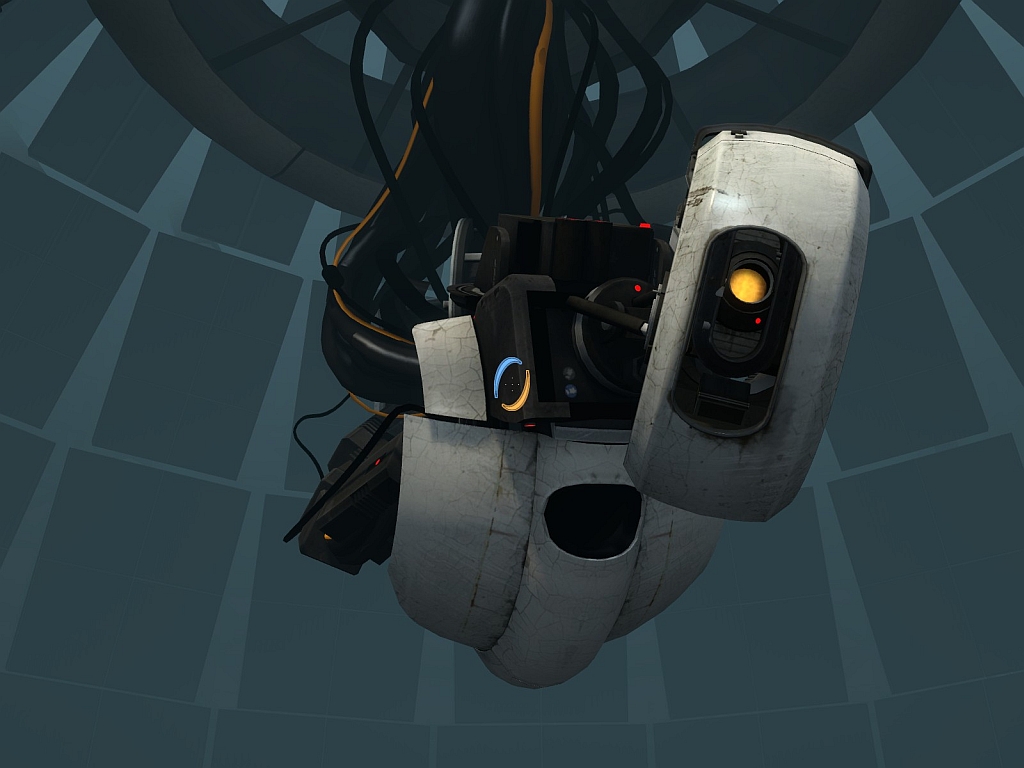A research article by Stephanie Harkin explores the villain of the puzzle game ‘Portal’ by Valve. GLaDoS is the central entity in control of the Aperture Science Lab inside of which the game is set. She is characterized as a manipulative, unemotional control freak who seeks to toy with the main character. The article investigates GLaDoS through a psychoanalytical lens which specifically considers her motherly behaviour in this context. The study uses Kristeva’s (1982) theory of abjection to help explore the parental aspect of GLaDoS, specifically how she is portrayed as an emotionally abusive mother. The author describes the complex relationship between mothers and gaming, discussing how they are often rarely portrayed within games themselves, stereotyped as enjoying casual games and having “women’s play dictated as efficient and productive” which contrasts with the relationship between men and gaming. The article then further discusses the link between the concepts of a nurturing mother and computerized female assistants, exploring the similarities and further discussing examples seen within popular media.

The discussion shifts into explaining the abject; how grotesque transformations in media changes between males and females and the justifications for this. The author provides examples where female monster’s have specific focuses on symbols relating to genitalia and sexualization of the female form, intertwined with body horror related to fear of castration. These forms are argued to be aimed specifically at being feared by men, thereby justifying the claim that the only purpose of these female monsters is to horrify the opposite gender, rather than be a horrifying figure regardless of gender. The author brings GLaDoS back into focus, discussing her unique form. GLaDoS is only met physically at the very end of the game, throughout the bulk of the game she is only heard by voice and by her controlling the playing field as part of her powers. As part of the final boss fight against her, the player literally removes aspects of her personality in the form of behaviour cores. The author argues the specific example of when the player discards her ‘morality core’, GLaDoS switches to a deeper, more seductive
voice and this is claimed to be an example of how sexuality needs to be contained.
GLaDoS’ voice is another example of her maternal aspect, which relates to the theory of objection mentioned previously. GLaDoS’ voice begins as authoritative, this is when the player’s understanding of her is that she is the one in charge of testing. But as the game goes on, it
becomes clearer to the player that GLaDoS is becoming more emotional abusive, berating the player for their choices and rebellion. GLaDoS starts to turn into a monstrous and abusive mother near the very end, as the player’s rebellion hits its climax after her murder attempt. The final concept the article discusses is the concept of an archaic mother from Creed (1993), described as a “negative figure seen only as the abyss which threatens to reabsorb what it once birthed”, and the author contrasts this with GLaDoS.
The article concludes by describing that although Portal’s villain was an achievement for mothers in games, it still falls into a trend where empowered women are seen as a threat. The different aspects of motherhood explored in this article are all related to patriarchal values, as all of the aspects are seen from this perspective.
Picture taken in-game, retrieved from Combine OverWiki at
https://combineoverwiki.net/wiki/File:P2_glados.jpg
Harkin S. “The Only Thing You’ve Managed to Break So Far Is My Heart”: An Analysis of Portal’s
Monstrous Mother GLaDOS. Games and Culture. 2020;15(5):529-543. doi:10.1177/1555412018819663
